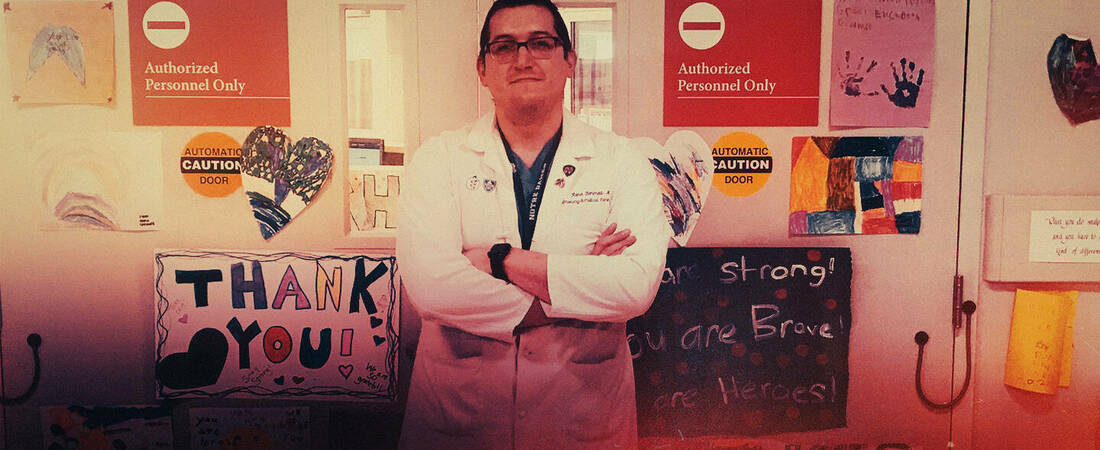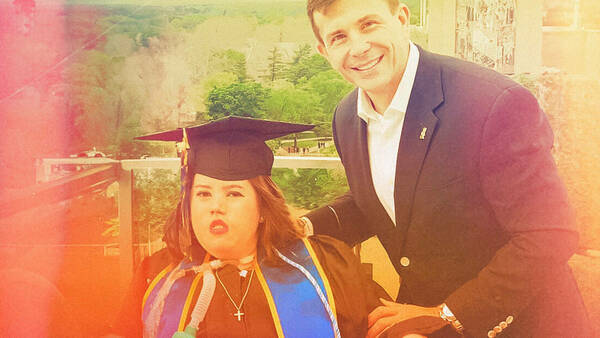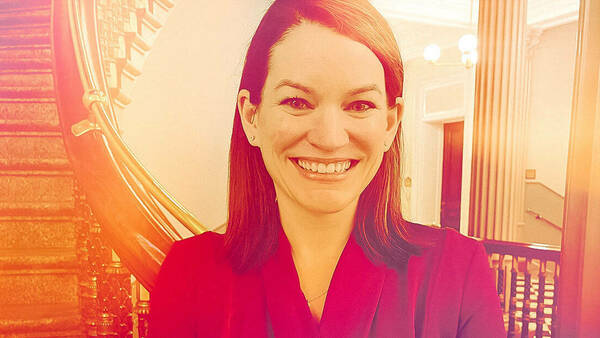Life experiences pushed Dr. Rene Bermea ’12 toward a career in medicine. Now, he is able to combine his two professional passions — providing excellent medical care to his patients and conducting scientific research to strive toward new breakthroughs — to amplify his impact and touch lives.
Bermea’s drive to both study medicine and conduct research ties back to his younger sister’s experience with a craniopharyngioma, a brain tumor near the pituitary gland. He remembers being a freshman in high school when he learned of his sister’s diagnosis. What followed were years of family separation as his sister, then six years old, received treatment in San Antonio and Houston — hours from his hometown of Del Rio, Texas.
“I was a freshman in high school when we were sitting at a Pizza Hut with my extended family because my sister, mom, and dad were in San Antonio,” Bermea recalls. “I was born and raised in Del Rio, which is over two hours from any major city. Any complex medical care had to be in [San Antonio]. [They] called to say they thought she had a brain tumor. The next few years were difficult because they not only spent a lot of time in San Antonio but at MD Anderson [Cancer Center] in Houston, which was six hours away, because no one wanted to take this case — to get rid of the tumor. I was in high school living with my grandma and sister.”
Several years after his sister’s tumor was successfully removed, Bermea can still pinpoint the specific moment he connected this personal experience with his academic aspirations and his dedication to scientific discovery.
During his first semester at Notre Dame, Bermea, a biochemistry major, sat in the Hesburgh Library reading his Biology 101 textbook. There was a paragraph about growth hormones and their functions, and he thought back to his sister needing hormone replacement therapy. He sat in the library, amazed at how someone not only understood that this small gland near the brain was responsible for producing so many essential hormones, but developed a medicine to replace them, tested this treatment on patients to ensure it worked safely, and then made a lasting impact on medicine. In this case, the discovery affected someone very near to him.
In his amazement, he wrote a motivating note in his textbook: “Repay the favor 1/18/09.”
Empowered from that point to receive the best scientific education possible, he pursued research fellowships with the University of Texas Medical Branch in Galveston and the same MD Anderson Cancer Center that cared for his sister during the summers before his junior and senior years, respectively. After Notre Dame, Bermea attended medical school at the University of Chicago’s Pritzker School of Medicine, but he still listened to the instincts that simultaneously pulled him towards research.
During his third year of medical school, he saw a 15-year-old patient with lupus psychosis on pediatric rotation, leading him to work with a rheumatologist. Also during these clinical rotations, Bermea discovered he liked working in the ICU, which guided him toward sub-specialization in pulmonology and critical care medicine. These experiences led him to pursue clinical research in autoimmune interstitial lung disease (ILD), a category of conditions that produce inflammation and scarring of the lungs.
While deciding on his specialty, Bermea found that lung transplantation is the “pinnacle of everything [he] wanted to do.” He could take care of a sick patient, continue to work in the ICU, and still incorporate his research interests in immune system-driven disease and organ rejection. Bermea is currently a fellow in the Harvard Medical School Pulmonary & Critical Care Medicine Fellowship Program at the Massachusetts General Hospital (MGH) and Beth Israel Deaconess Medical Center (BIDMC), caring for critically ill COVID-19 patients. While not providing care, he’s conducting research both in the laboratory, where he seeks to understand the mechanisms of lung injury after transplantation, and in the clinic, where he studies extracorporeal membrane oxygenation (ECMO) and ILD. In July 2022, he will embark on his final year of clinical training in a transplant pulmonology clinic, treating lung transplant patients. Bermea hopes this experience will lead to his goals of serving as a transplant pulmonologist and ICU doctor, as well as having his own lab to continue research.
This fall, his dedication to his profession and caring for critically ill patients earned him a spot among the Notre Dame Alumni Association’s 2021 Domer Dozen cohort. This honor is awarded to 12 young alumni each year who exemplify the core tenets of the Alumni Association’s mission statement — faith, service, learning, and work.
As he continues down his professional path, Bermea looks back to his time at Notre Dame and how it helped cultivate his attentiveness to processes as opposed to just outcomes. During his junior year, he added a second major in philosophy, and credits this combination of liberal arts and science with getting him to this point.
“Science teaches you what to think about,” said Bermea. “Philosophy teaches you how to think.”
The value of this combination is evident in Bermea’s fascination for the research process and how identifying gaps and pursuing a project with patience can help many people.
“In academic medicine, you have to be driven by not just affecting and improving one person’s life, which we do a lot in the clinic, but improving a lot of people’s lives — even those you will never meet — for the long term."



